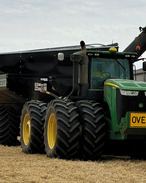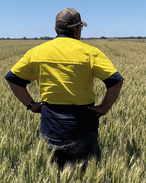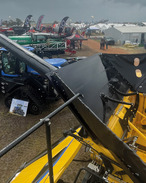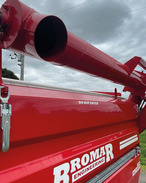This article is 7 years old. Images might not display.
The work is part of a new Grains Research and Development Corporation (GRDC) project aimed at eliminating grain defects in desi and kabuli chickpeas.
NSW Department of Primary Industries Pulse Quality research program leader Jenny Wood said she was particularly interested in seed markings (particularly seeds with tiger stripe or blotch markings), and weather damaged seed (symptoms include light weight, brittle seeds or sprouting).
“We would appreciate chickpea seed samples of any condition, whether they look clean or contain visibly diseased, marked or weathered seeds,” Wood said.
“We want samples from across Queensland, New South Wales, Victoria and South Australia to determine the percentage of seed affected in each sample,” he said.
“Our aim is to investigate whether specific environmental conditions are conducive to these defects and if any varieties are more susceptible than others. This will then enable breeding of more tolerant varieties and possibly varied agronomic practices to reduce the risks of defects.”
Chickpea samples sent in by growers will also be tested for germination, seed borne diseases and moulds by NSW DPI plant pathologist Kevin Moore as part of the Northern NSW Integrated Disease Management project.
For the test, send a sample of harvested grain, ideally 500g secured in two plastic bags (double bagged). Samples should not be representative of the entire harvested crop.
Other information required includes: variety; address of the crop paddock (or GPS coordinates would be ideal); dates crop was sown and harvested (and flowering and maturity dates would be helpful if you have them); did you think the plant was stressed in the field?; did the crop show reddening of the foliage?; were there any other varieties near you that were not affected? (if so, what variety?).
Samples should be sent to Dr Jenny Wood, c/o Kate Keir, Tamworth Ag Institute, 4 Marsden Park Rd Calala NSW 2340.






















